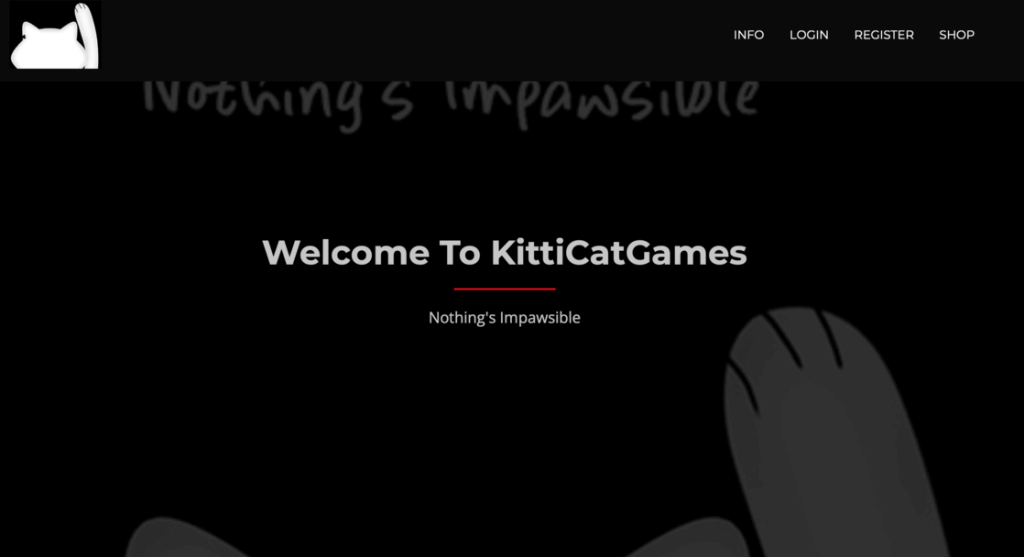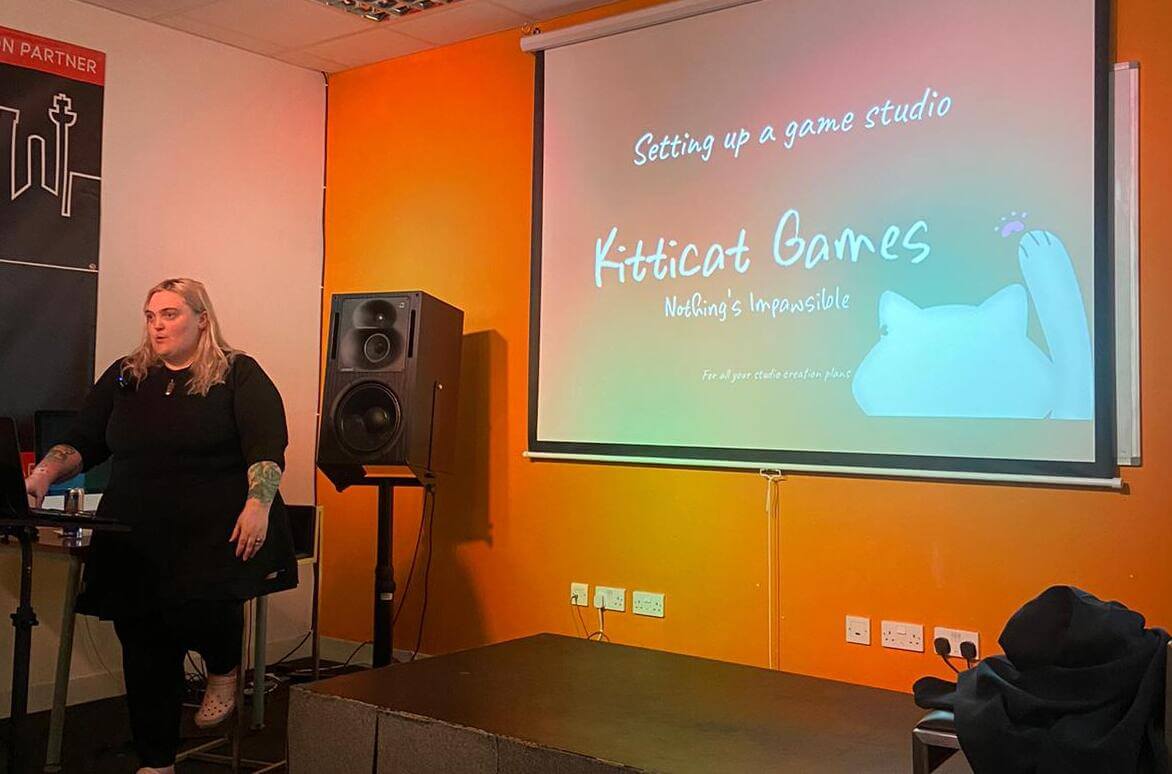Our Liverpool campus welcomed a number of guest speakers to share their insights with our Game Art and Animation students, including our alumna Kira (Kitti) Lonergan.
Founder of local indie games studio Kitticatgames, Kitti’s talk explored the best ways to launch a company and some essential advice on what to consider and remember when setting it up.
Read Kitti’s tips in our blog and if you’re interested in finding out more about our course, then get in touch with our team.
Plan ahead
Before you start out with your own business venture, ask yourself what it is you want to do in the world of games. What will make your studio different? Who are you doing it for?
For us, we decided we wanted to make games we enjoy playing ourselves as well as making. Our studio is focused on our people enjoying it – there’s nothing worse than working on a game that you’re not into.
Work out your niche
We focus on horror and detective games, that’s our niche.
Having a hook is important – everyone knows Dambuster Studios and Lucid Games – they have specific styles that they are known so figure out what it is you want to do. You don’t need to totally stick to it but have it as your main idea and focus so gamers know what to expect from you and your business.
Remember who you are doing this for and assess the market
In a gaming studio, you need to keep in mind the clients, the end user, and the players. We’re trying to sell games as well as make them for ourselves.
You should also look into what’s popular, do a case study before working on something. This is essentially to assess what people are enjoying. There’s no point in putting out a Tetris style game when another type is really popular.

Get a business address
As a company, you will need to find a business address. It’s a great idea for your own privacy to use somewhere different to your home as it means you won’t be sharing where you live with Companies House.
I use Ghost Mail. Kitticatgames is registered in London even though our HQ is in Liverpool. That’s fine, it’s just where your business correspondence and post will go. If you do get any post, Ghost Mail will scan it and email it to you. Ghost Mail is relatively cheap and easy to use and means you won’t have mountains of paperwork to wade through.
inform Companies House and register your business
When you want to launch your business, remember to tell Companies House you are setting up a studio or company.
Once you have set up with them, tell them the company name, give them the address you want it to run from, contact details. As the person setting it up, you are also saying that you are the director.
Build an online presence
Setting up a website is an important step for any business. As soon as you register your company, then you need to start sharing details of what it is and what it does with the wider world.
We worked closely with another Website Development student from SAE on designing the site and chose a hosting company called Green Geeks.
You get free emails for everyone who works there through the website. It’s also good for the environment, as it plant trees on your behalf to offset your energy use.
Financial commitments
You need to submit confirmation of your company details every year. You also need to remember to work out your tax well in advance of the submission and payment date at the end of January.
Set up reminders of your commitments and stick to them.
Consider how you want to finance your company
There are different ways to approach financing your company. Business loans, shareholders and investors. There are pros and cons to each depending on how you want to be organised. Investors will give you money and ask for money back – sometimes at a higher rate compared with what you borrowed.
With shareholders, you give up control and they can vote on how the business operates.
There are different business loans and government schemes available too – always check the small print and if there are any responsibilities that come with them.
Connect with Kitticatt Games on social media:
STUDY GAME ART ANIMATION AT SAE
SAE offers two-year accelerated degree courses in growth creative media industries including Game Art Animation and Games Programming – all aimed at helping the next generation of creative professionals get ahead.
From our expert tutors to our cutting-edge computer labs, SAE’s degree will enable you to master a range of both technical and practical industry-relevant skills.


































